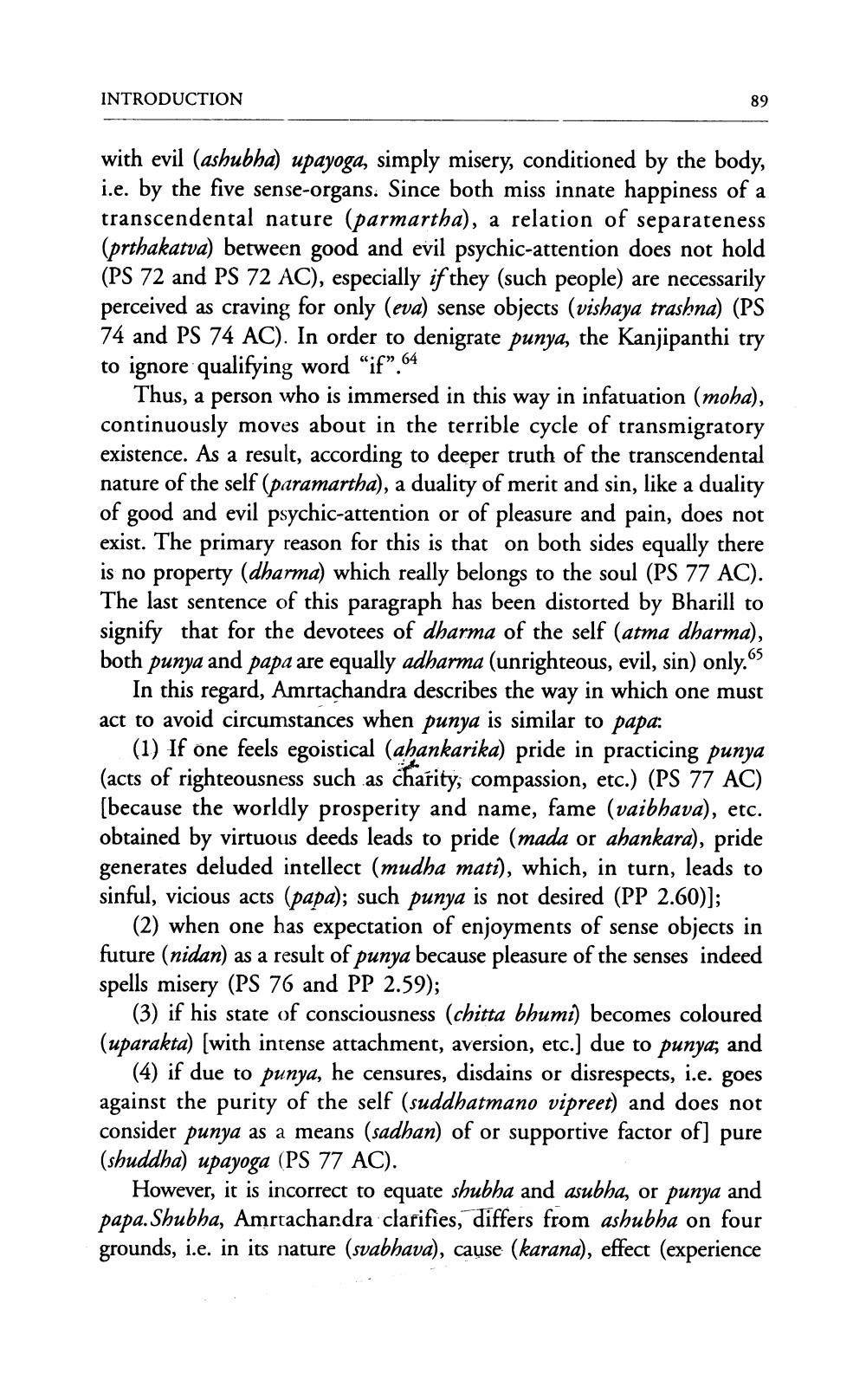________________
INTRODUCTION
89
with evil (ashubha) upayoga, simply misery, conditioned by the body, i.e. by the five sense-organs. Since both miss innate happiness of a transcendental nature (parmartha), a relation of separateness (prthakatva) between good and evil psychic-attention does not hold (PS 72 and PS 72 AC), especially if they (such people) are necessarily perceived as craving for only (eva) sense objects (vishaya trashna) (PS 74 and PS 74 AC). In order to denigrate punya, the Kanjipanthi try to ignore qualifying word "if"."
64
Thus, a person who is immersed in this way in infatuation (moha), continuously moves about in the terrible cycle of transmigratory existence. As a result, according to deeper truth of the transcendental nature of the self (paramartha), a duality of merit and sin, like a duality of good and evil psychic-attention or of pleasure and pain, does not exist. The primary reason for this is that on both sides equally there is no property (dharma) which really belongs to the soul (PS 77 AC). The last sentence of this paragraph has been distorted by Bharill to signify that for the devotees of dharma of the self (atma dharma), both punya and papa are equally adharma (unrighteous, evil, sin) only." In this regard, Amrtachandra describes the way in which one must act to avoid circumstances when punya is similar to papa.
65
(1) If one feels egoistical (ahankarika) pride in practicing punya (acts of righteousness such as charity, compassion, etc.) (PS 77 AC) [because the worldly prosperity and name, fame (vaibhava), etc. obtained by virtuous deeds leads to pride (mada or ahankara), pride generates deluded intellect (mudha mati), which, in turn, leads to sinful, vicious acts (papa); such punya is not desired (PP 2.60)];
(2) when one has expectation of enjoyments of sense objects in future (nidan) as a result of punya because pleasure of the senses indeed spells misery (PS 76 and PP 2.59);
(3) if his state of consciousness (chitta bhumi) becomes coloured (uparakta) [with intense attachment, aversion, etc.] due to punya; and
(4) if due to punya, he censures, disdains or disrespects, i.e. goes against the purity of the self (suddhatmano vipreet) and does not consider punya as a means (sadhan) of or supportive factor of] pure (shuddha) upayoga (PS 77 AC).
However, it is incorrect to equate shubha and asubha, or punya and papa. Shubha, Amrtachandra clarifies, differs from ashubha on four grounds, i.e. in its nature (svabhava), cause (karana), effect (experience




